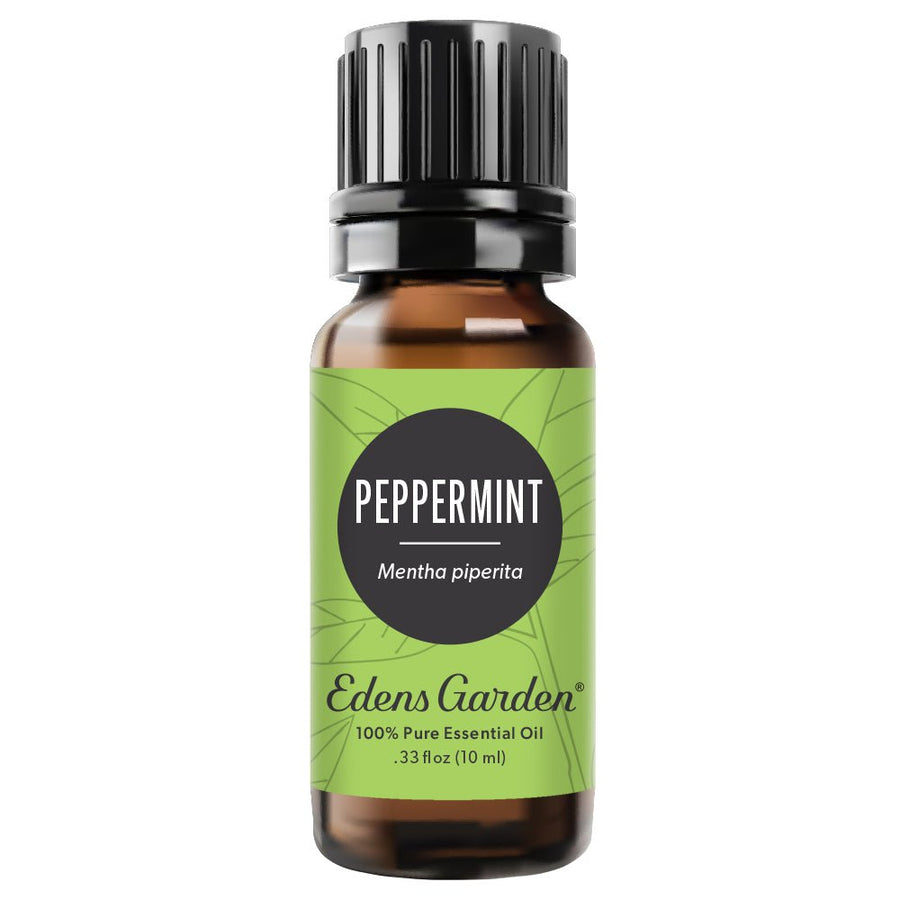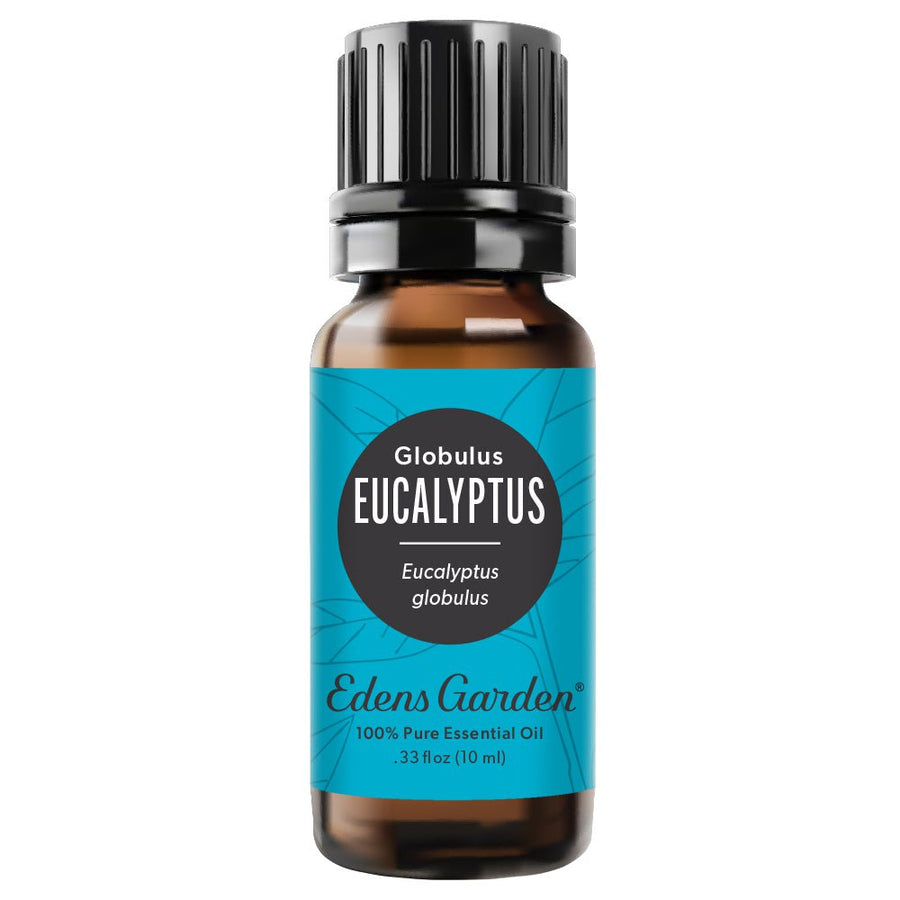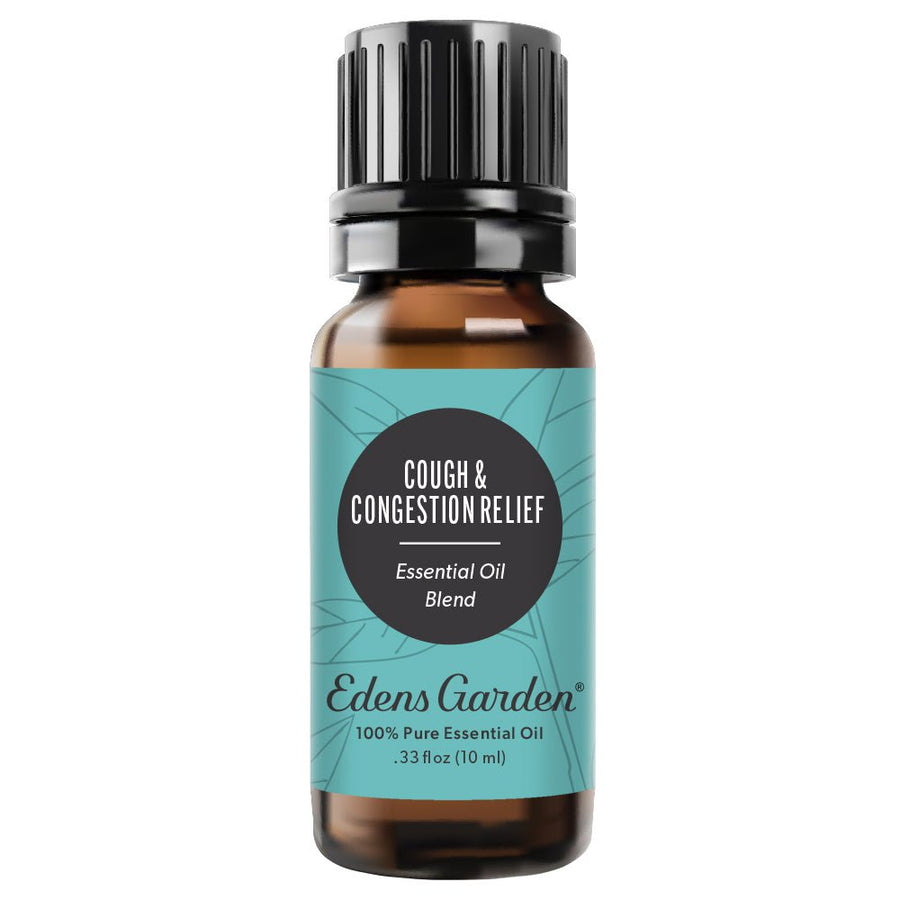Top 10 Essential Oils For Inflammation

Are you wondering, "What essential oil is good for inflammation?" You're not alone. Inflammation, whether it’s visible—like irritated skin or the red patch around a fresh cut—or hidden deep within the body, such as respiratory or gastrointestinal (GI) inflammation, can cause significant discomfort. Understanding the root of your inflammation is key to choosing the best essential oils for relief.
Different types of inflammation require different essential oils. For example, an oil that soothes skin irritation might not be effective for respiratory issues. Whether you're seeking relief from muscle soreness, wound healing, or chronic inflammation, the right essential oil can make all the difference.
Inflammation is the body's natural response to injury or infection. Acute inflammation, like the swelling from a bee sting or a sprained ankle, helps the body heal. However, when inflammation becomes chronic, it can lead to ongoing issues like fatigue, stress, bloating, and persistent pain.
In addition to a healthy diet rich in leafy greens and plenty of rest, using essential oils with anti-inflammatory properties can significantly reduce chronic inflammation. Below, we’ve curated the top 10 essential oils for inflammation to help you find the perfect natural remedy for your needs.
#1 INFLAMMATION AID ESSENTIAL OIL BLEND
Edens Garden's Inflammation Aid essential oil blend stands out as a powerful natural remedy for various types of inflammation. This expertly crafted blend combines the potent anti-inflammatory properties of Turmeric and Ginger, two ingredients renowned for their ability to support healthy muscles and joints.
Whether you’re dealing with acute inflammation from a recent injury or seeking relief from chronic discomfort, Inflammation Aid enhances blood flow and helps restore vitality to inflamed areas, making it an essential addition to your wellness routine. Whether you diffuse it to tackle respiratory inflammation or apply it topically for targeted relief, Inflammation Aid is a versatile tool in your arsenal against inflammation.
#2 HEMP ESSENTIAL OIL
Also known as Cannabis essential oil, Hemp essential oil is produced by the steam distillation of the cannabis herb. It doesn’t contain THC or CBD. Instead, its active components are myrcene and beta-caryophyllene, which are packed with anti-inflammatory properties that may help reduce redness and swelling.
Hemp is one of the most promising essential oils for joint pain and inflammation.
- A 2015 study on myrcene found that this compound may improve cartilage health.[1]
- Myrcene also has mid-analgesic properties, meaning that it can help reduce physical discomfort.
If you’re suffering from muscle pain, aching joints, or post-exercise inflammation, Hemp oil may hasten your body’s natural healing.
Note: Hemp essential oil and Hemp Seed carrier oil are two different products. They can be used in combination, or separately. What’s the difference? Hemp essential oil is made from the Hemp herb, while Hemp Seed carrier oil is made from seeds and composed of skin-nourishing fatty acids.
#3 PEPPERMINT ESSENTIAL OIL
A 2016 study demonstrated that Peppermint essential oil can significantly reduce itchiness, including itchiness caused by scars.[2] With cooling, analgesic, and anti-inflammatory properties, Peppermint essential oil is a prime pick for helping reduce inflammation caused by sunburn or injury. Consider adding Peppermint essential oil into your routine to minimize pain caused by skin inflammation.
In addition, Peppermint improves the skin's absorption of other essential oils. Peppermint oil also makes a great addition to just about any topical application as it enhances other oils’ effects on the skin.
#4 EUCALYPTUS ESSENTIAL OIL
There’s a reason why cough drops often taste like eucalyptus: this aromatic plant can help reduce inflammation in the respiratory tract. Eucalyptus has long been a staple of folk medicine traditions in Australia, where it is used to help with respiratory inflammation.
Modern science is beginning to confirm Eucalyptus’ beneficial effects:
- A 2003 study in the Journal of Ethnopharmacology demonstrated that inhaled[3] eucalyptus reduced respiratory pain and helped combat inflammation in test subjects.
- A more recent 2017 study identified specific chemical pathways that enable Eucalyptus oil to support lung health.[4]
While essential oils are not meant to replace doctor-prescribed medications, Eucalyptus essential oil can be a great additional support due to its anti-inflammatory, antibacterial, decongestant, and mucolytic (mucus-thinning) properties.
#5 LAVENDER ESSENTIAL OIL
The mother of essential oils, Lavender has been used medically for millennia. A 2002 review of relevant scientific literature on Lavender confirms its antibacterial, antifungal, and anti-inflammatory properties.[5]
Known to help support mood as well as aid the healing of surface-level wounds, Lavender essential oil can help support both respiratory and topical inflammation.
Dilute Lavender essential oil and use it as a topical application to help with inflammation as well as consider using an aroma diffuser before bed to reap its relaxing properties.
#6 SPRUCE ESSENTIAL OIL
Spruce is thought to have anti-inflammatory, antioxidant, and analgesic properties. A traditional medicine in First Nations cultures, spruce has long been used to manage physical discomfort, especially sore joints. Spruce essential oil may also be used to help with chronic pain such as joint inflammation or muscle aches.
A 2015 study by Dr. Yadav Uprety and his colleagues found that boreal plants—including spruce—can be effective in mitigating aches like joint stiffness and muscle soreness.[6]
When it comes to pain and respiratory issues associated with inflammation, Spruce’s properties make this oil a go-to.
#7 GERMAN CHAMOMILE CO2
German Chamomile has long been used as a medicinal herb for ailments—including inflammation—that appear on the skin’s surface.[7] Traditional cultures apply German Chamomile topically to:
- Help speed wound healing of bruises and cuts
- Help soothe irritation
- Help treat rashes including poison ivy and diaper rash
In a summary of current findings on German Chamomile, Professor Janmejai Srivastava and his colleagues note one reason for Chamomile essential oil’s efficacy at soothing upset skin: “Chamomile flavonoids and essential oils penetrate below the skin surface into the deeper skin layers,” delivering their anti-inflammatory effects where they’re most needed.
When it comes to inflammatory skin problems, it’s important to use gentle, soothing products that won’t further irritate the skin.
#8 MUSCLE RELIEF ESSENTIAL OIL BLEND
Whether you’re experiencing muscle soreness due to physical activity, an injury, or during periods of stress or sleep, the Muscle Relief essential oil blend might be the best EO blend for you.
The powerful, minty aroma can support the loosening of tight muscles to help decrease inflammation and swelling thanks to its cooling effect. This blend contains Peppermint, Clove Bud, Wintergreen, and Helichrysum essential oils, which are some of the best inflammation-fighting oils around.
#9 GINGER ESSENTIAL OIL
You may already eat Ginger for an upset stomach because the plant’s unique chemical composition provides benefits when applied topically too.
A review of scientific literature on Ginger oil indicates that clinical studies are underway to evaluate Ginger’s use for treating stiff joints, sore muscles, and more.[8]
Ginger essential oil has well-known antioxidant and anti-inflammatory properties along with its uplifting aroma that makes it a natural choice for physical discomfort.
#10 COUGH & CONGESTION RELIEF
Edens Garden's Cough & Congestion Relief essential oil blend is specifically designed to alleviate respiratory inflammation by soothing lung spasms and supporting optimal lung function. This powerful blend features a synergistic combination of Rosemary- Moroccan, Cardamom, Juniper Berry, and Hyssop, each known for their ability to address respiratory issues from multiple angles.
Whether you're dealing with a persistent cough, congestion, or inflamed airways, this blend offers natural, targeted relief to help you breathe easier.
Using Essential Oils In Home Remedies For Inflammation
Now that you’ve read about all the best essential oils for pain and inflammation, you’re probably eager to put them to use in your daily life. The following remedies deliver plants’ most potent qualities exactly where you need them.
SOOTHE SORE MUSCLES
As you can see, several oils hold promising qualities for reducing the physical discomfort associated with inflammation. Try out the following anti-inflammatory essential oil recipes to create your own relief at home:
Ingredients:
- 1 tbsp soy wax
- 1 oz Hemp Seed carrier oil
- 10 drops of Hemp essential oil
- 6 drops Helichrysum-Italicum essential oil
- 2 drops German Chamomile CO2
Instructions:
- In a double boiler, melt the wax.
- Turn off the heat, then add all oils.
- Pour mixture into a 2 oz tin or glass jar and let cool.
- Scoop out and apply to areas of concern.
Pro tip: If you're regularly dealing with muscle soreness, try taking a bath with our Detox Bath Salt or Ache Bath Salt. All of our Bath Salts include high-quality Epsom salt which can help speed up the recovery process while your body eliminates toxins.
CALM IRRITATED SKIN
If your skin is itchy, red, or inflamed, give it some much-needed moisture by applying the following blend after washing your face:
- 2 tbsp Tamanu carrier oil
- 5 drops of Hemp essential oil
- 5 drops of Lavender essential oil
- 2 drops German Chamomile CO2
This cooling, anti-inflammatory essential oil blend can help soothe itchiness and reduce redness. You can also try out Pampered Skin Roll-On blend which is specially designed for itchiness and irritation.
FOCUS ON YOUR JOINTS
Whether you’ve been spending too much time at your keyboard or you’ve taken one too many tennis serves, your joints may need some TLC. Especially for those suffering from arthritis pain, follow these steps to support pain relief.
Ingredients:
- 1 oz Soy Wax
- 2 oz Avocado carrier oil
- 7 drops of Frankincense essential oil
- 5 drops German Chamomile CO2
- 5 drops of Lavender essential oil
Instructions:
- Melt soy wax in a double boiler.
- Add all oils and stir to combine.
- Place the mixture in a 3 oz glass container.
- Let cool.
-
Apply to inflamed areas.
Respiratory Blends For Aromatherapy
If you’re experiencing inflammation in the form of chest tightness, mucous, and other cold symptoms, harness the power of essential oil aromatherapy.
Here are two of our favorite diffuser blends.
RESPIRATORY BLEND
Place this blend in a 10 ml bottle for decongestant, mucolytic, and anti-inflammatory effects. Add to an aromatherapy diffuser to soothe respiratory inflammation.
- 50 drops of Eucalyptus essential oil
- 50 drops of Spruce essential oil
- 50 drops Spike Lavender essential oil
If you would rather use a unique, pre-blended essential oil, try our Cough & Congestion Relief essential oil blend blend.
GET WELL SOON BLEND
Place the following oils in a 10 ml bottle to create an anti-inflammatory stock blend for inflammation associated with skin irritation, injury, and infection.
- 50 drops of Lavender essential oil
- 50 drops Frankincense & Myrrh essential oil blend
- 50 drops of German Chamomile CO2
SOURCES:
- Evaluation of the anti-inflammatory, anti-catabolic and pro-anabolic effects of E-caryophyllene, myrcene and limonene in a cell model of osteoarthritis. https://www.sciencedirect.com/science/article/abs/pii/S0014299915000412
- Effectiveness of topical peppermint oil on symptomatic treatment of chronic pruritus.. https://www.ncbi.nlm.nih.gov/pmc/articles/PMC5066694/
- Analgesic and anti-inflammatory effects of essential oils of Eucalyptus. https://www.sciencedirect.com/science/article/abs/pii/S0378874103003131
- Suppression of inflammatory and infection responses in lung macrophages by eucalyptus oil and its constituent 1,8-cineole. https://journals.plos.org/plosone/article?id=10.1371/journal.pone.0188232
- Biological activities of Lavender essential oil. https://onlinelibrary.wiley.com/doi/abs/10.1002/ptr.1103?casa_token=TrevNG748woAAAAA:hifNb_cQJeRLzmdb7XKXCfxyDtdo6S5OlnMIYpWmsf7bRw6lLnOijIR5Z-46dF-qWe2LwF-4YE0wOw
- Traditional Uses of Medicinal Plants from the Canadian Boreal Forest for the Management of Chronic Pain Syndromes. https://onlinelibrary.wiley.com/doi/full/10.1111/papr.12284?casa_token=P6yZXCErIrUAAAAA%3AuKVIkWQFnSo1EhHtmstkfoI3NDm9_YnWmQM-hAU0Jop6HAFtb8VOJrPaiBmOvPa9pL2PS0JBKsTRlFw
- Chamomile: A herbal medicine of the past with a bright future (Review). https://www.spandidos-publications.com/mmr/3/6/895
- Anti-oxidative and anti-inflammatory effects of ginger in health and physical activity: review of current evidence. https://www.ncbi.nlm.nih.gov/pmc/articles/PMC3665023/
Grab The Essentials Here:
Leave a comment (Comments will be approved before showing up)
6 comments
Edens Garden
Hi Angela! Good question. If the company is strict about what not to put in the tub, then I would check with them first.
Angela OBrien
Hi Bella, I am fairly new to all of this. I have a walk in tub and I was wondering if it would be okay to use the bath salts which I think is a great idea. Do you think I should check with the company first? They are strict about what goes into the bath water like anything that would produce soapy bubbles (ivory liquid). Thank you, Angela
Melanie De Rochie
Anything for 2 auto Immune Diseases?
Edens Garden
Hi Marilyn! Studies have shown that Peppermint oil can assist with IBS. You can learn more here: https://www.edensgarden.com/blogs/news/aaa-which-essential-oils-should-i-use-for-digestion?
For sciatica, we would suggest a topical application of an oil such as Aches & Pains, Massage Therapy or Circu-Touch.
For specific instructions and further assistance, please contact our aromatherapist: aaa@edensgarden.com
Marilyn Thompson
What product for severe IBS constipation and how to use product or just use full strength topically?
What product for severe sciatica and how tonuse? Thank you.










HydroGenie
April 10, 2025 at 8:04 am
“This article is incredibly informative! I appreciate how clearly each essential oil’s anti-inflammatory properties are explained. I’ve been using a few of these oils, but now I’m excited to try others like Helichrysum and Blue Tansy. Thanks for such a well-researched and helpful guide!”